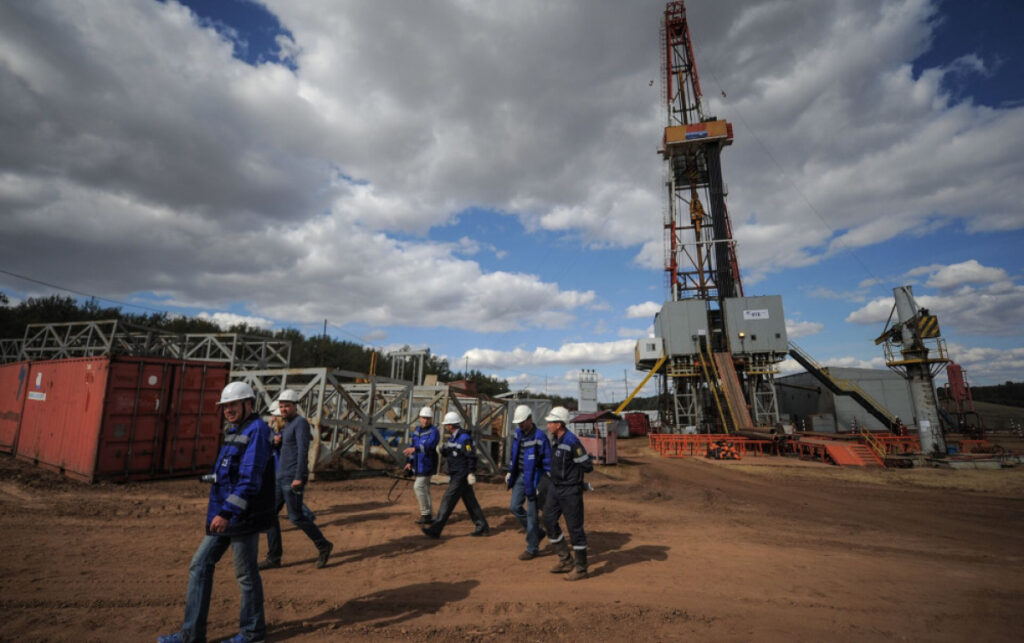SANEG also steps up development at unconventional oil field claimed to be its largest ever find
Uzbekistan’s largest privately held oil producer Sanoat Energetika Guruhi (SANEG) managed to increase its conventional oil production last year despite the heavily depleted status of its fields in the country.
In its 2022 operational update, SANEG reported a 9% increase in its oil production, to about 4 million barrels against 2021’s levels, even though it is operating dozens of oilfields with declining output previously operated by state-owned Uzbekneftegaz.
The increase was largely due to the commissioning of 16 new development wells and restart of 59 idle wells following the completion of workovers conducted with modern recovery techniques.
SANEG said it also employed other methods such as sidetracking, switching to mechanised production technology and using chemicals to stimulate flow rates at another 248 wells across the country.
The company added that the majority of its investments remained in its upstream segment, despite taking control last year of one of the country’s largest refining assets, the Fergana oil refinery, with a view to upgrading the facility.
SANEG has also continued to run technical assessments on its largest greenfield, Yangi Uzbekistan, in an effort to achieve commercial flows from the large unconventional asset, which hosts shallow heavy-oil deposits.
The company revealed in June last year that the Yangi Uzbekistan discovery may hold estimated in-place reserves of about 730 million barrels of heavy, viscous oil, making it the largest oil asset ever found in the country, which predominantly hosts gas reserves.
SANEG spent almost $79 million last year on the development of a pilot production site at Yangi Uzbekistan, the construction of gas transportation infrastructure and the start of a field development in the Ustyurt region, which it views as one of the most promising in Uzbekistan.
Field infrastructure commissioned last year included oil treatment facilities, in-field product pipelines, production wells, reservoir pressure maintenance systems and residential camps for its employees.
SANEG told Upstream that by February this year, it had already drilled more than 100 wells at Yangi Uzbekistan to depths of between 400 and 750 metres, almost doubling the well count on the field since 2021.
The company is currently testing a steam-assisted gravity drainage solution imported from the US at the field, using chemicals and steam to turn the heavy oil into a liquid that can be pumped up from the reservoir.
Previously known as Jizzakh Petroleum and SEG, SANEG is owned by Uzbek businessman Bakhtiyor Fazilov.
Fazilov’s largest business prior to SANEG was drilling contractor Eriell, which worked for Russian gas independent Novatek and Gazprom’s oil-producing subsidiary Gazprom Neft.
Gazprom controversy
Gazprom has recently intensified its efforts to expand in Uzbekistan and Kazakhstan after losing gas supply contracts with European customers in 2022.
The company promised to arrange gas supplies to the country to help authorities handle winter gas shortages.
However, Gazprom’s activity in Uzbekistan sparked public suggestions of covert agreements regarding the transfer of the country’s hydrocarbon assets.
Earlier this week, Uzbek governmental officials, headed by Energy Minister Zhurabek Mirzamakhmudov, held a meeting in Tashkent with representatives of local media and the public to stress that no new oil and gas fields had been awarded to Gazprom.
According to Mirzamakhmudov, quoted by Uzbek news portal Kun, Gazprom is an investor in just two deposits out of more than 250 in the country.
Source : Upstream


